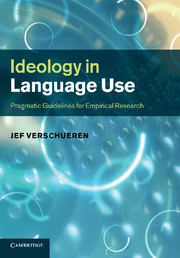Preface
Published online by Cambridge University Press: 05 January 2012
Summary
Preface
The public sphere is an arena with never-ending struggles over meaning. Situations may ‘arise’ but, more often than not, human agents are involved whose decisions and actions are based on assessments of and disputes over a present or prior context as well as hopes for the future. Decisions have to be argued for in advance. Actions may require subsequent legitimation. The idea that an issue – any issue – could be settled once and for all is an illusion. Not so long ago, for instance, some of us were convinced that Europeans’ views of their past as colonizers had finally matured, a strongly critical stance being allowed to come to the foreground. As in other areas of debate, however, the pendulum kept swinging. A social and political dynamics trying to cope with more recent questions concerning diversity and patterns of dominance, and the possible conclusions one might have to draw on the basis of an admission of past errors, led, in France, to the adoption of law 2005-158 (23 February 2005), “portant reconnaissance de la Nation et contribution nationale en faveur des Français rapatriés.” Article 1 says,
La Nation exprime sa reconnaissance aux femmes et aux hommes qui ont participé à l’oeuvre accomplie par la France dans les anciens départements français d’Algérie, au Maroc, en Tunisie et en Indochine ainsi que dans les territoires placés antérieurement sous la souveraineté française.
With this opening article, as well as with the title, this law casts itself as a means of protecting French citizens who served in former French colonies against undue personal disregard and disapprobation. This is fully compatible with the many practical measures specified in the law to the benefit of those citizens, or with an article explicitly prohibiting attacks on anyone identifiable as or supposed to have been an harki, an Algerian soldier loyal to the French during the Algerian War of Independence. This noble goal of protecting individuals who can barely be held responsible as individuals for policies of the state is used in passing, however, as a frame of legitimation for measures with clear ideological significance. Thus Article 4 says,
Les programmes de recherche universitaire accordent à l’histoire de la présence française outre-mer, notamment en Afrique du Nord, la place qu’elle mérite.
Les programmes scolaires reconnaissent en particulier le rôle positif de la présence française outre-mer, notamment en Afrique du Nord, et accordent à l’histoire et aux sacrifices des combattants de l’armée française issus de ces territoires la place éminente à laquelle ils ont droit.
This is a straightforward instruction for history writing and history teaching. The heart of the matter is a definition of events, discursively generated meaning, which enters the cycle of assessments, arguments, decisions, actions, legitimations.
- Type
- Chapter
- Information
- Ideology in Language UsePragmatic Guidelines for Empirical Research, pp. xi - xivPublisher: Cambridge University PressPrint publication year: 2011

